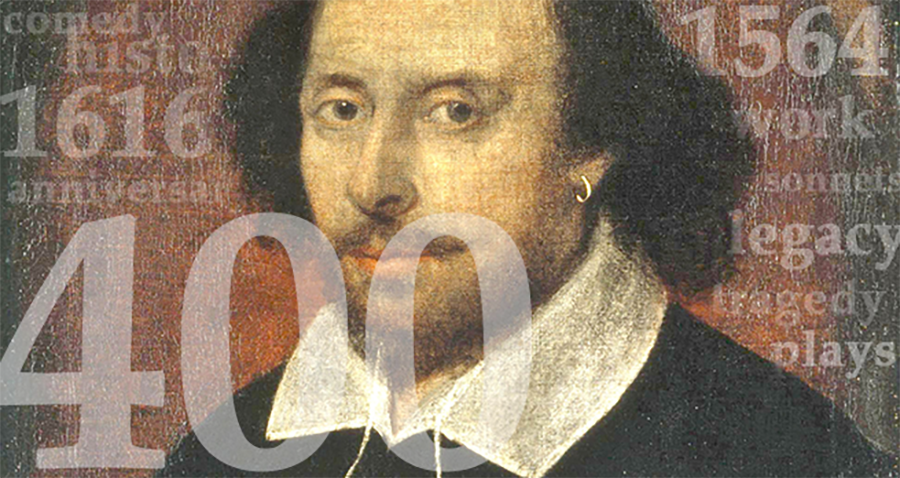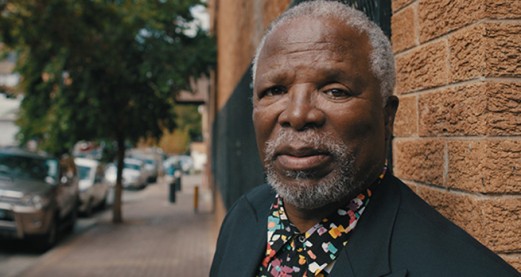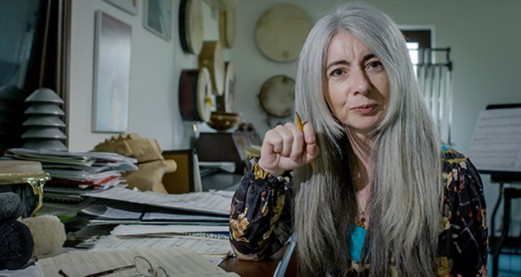It has been over 450 years since the world's most famous and well-respected playwright was born and to mark the anniversary there’s an abundance of celebrations and commemorations of Shakespeare and his work.
To honour this event, we've compiled a fantastic range of free resources on his plays, sonnets and more. In addition to this, The Open University has been involved in many different co-productions with the BBC on his life, work and legacy. To get started and 'cheer thyself a little' you can check out the FREE resources below.
See how Shakespeare is perceived across the globe
Read up on what Shakespeare's life was like
Dig into the details of Shakespeare's work
Explore various Shakespearean texts and genres
The The first collected edition of Shakespeare’s works, referred to by critics as the ‘First Folio’, appeared in 1623, seven years after his death. The Folio splits Shakespeare's plays into three categories: comedy, tragedy and history. You can explore each category in more detail in the tabs below. There's an additional tab conveying for Shakespeare’s notorious love poems, the sonnets (and for poetry in general). We've also provided the free eBook An Introduction to Shakespeare's First Folio to give you the low-down on the background to this amazing book.
Select a tab to begin...
 Shakespeare was a master of comedy and audiences across the globe today still laugh out loud at the double-entendres, wit and confusion between characters that light up works such as The Taming of the Shrew, A Midsummer Night's Dream, As You Like It and Twelfth Night. It’s not all hilarity, however. Even Shakespeare’s sunniest comedies have their darker side, addressing topics that still worry us today: alienation; loneliness; sexual identity; madness; lust.
Shakespeare was a master of comedy and audiences across the globe today still laugh out loud at the double-entendres, wit and confusion between characters that light up works such as The Taming of the Shrew, A Midsummer Night's Dream, As You Like It and Twelfth Night. It’s not all hilarity, however. Even Shakespeare’s sunniest comedies have their darker side, addressing topics that still worry us today: alienation; loneliness; sexual identity; madness; lust.
The rich and mysterious ‘late plays’ that Shakespeare wrote towards the end of his life, like The Tempest and The Winter’s Tale, are often described as ‘romances’ rather than as ‘comedies’. They are full of magic and special effects, taking full advantage of the sophisticated staging possible in the new indoor theatres of the period.
Use the resources below to explore the way Shakespeare used comedy in his plays and find out more about the genre of comedy itself. You can also discover the complexity of romance and marriage in Shakespearean comedy by listening to our podcast Midsummer Nights Dream: Love and Feminism and rediscover The Taming of the Shrew, the play that became a template for all the “battle of the sexes” comedies to follow.
 Murder, war, adultery, revenge, suicide, revolution, ghosts and witches: this is the dizzying fabric of everyday life in Shakespeare's tragedies —iconic monuments of world culture such as Hamlet, Macbeth and Julius Caesar. These are plays that conjure up complex and shifting in audiences, as their attitudes to the characters on stage shift unpredictably from one character to another. Some, like Romeo and Juliet, have been reworked innumerable times over the years in films, ballets, books and many other forms.
Murder, war, adultery, revenge, suicide, revolution, ghosts and witches: this is the dizzying fabric of everyday life in Shakespeare's tragedies —iconic monuments of world culture such as Hamlet, Macbeth and Julius Caesar. These are plays that conjure up complex and shifting in audiences, as their attitudes to the characters on stage shift unpredictably from one character to another. Some, like Romeo and Juliet, have been reworked innumerable times over the years in films, ballets, books and many other forms.
Explore Shakespeare's tragedies in more detail in the free learning tools below.
 Shakespeare addressed some of the hottest political topics of his time in his vivid dramatisations of English history. In a sequence of eight plays, he charted the turbulent years leading up to the arrival of the Tudor dynasty, introducing audiences to a dazzling variety of characters—from the impetuous Hotspur and the villainous hunchback Richard III to the subversive man-mountain Sir John Falstaff, one of world literature’s most memorable comic creations.
Shakespeare addressed some of the hottest political topics of his time in his vivid dramatisations of English history. In a sequence of eight plays, he charted the turbulent years leading up to the arrival of the Tudor dynasty, introducing audiences to a dazzling variety of characters—from the impetuous Hotspur and the villainous hunchback Richard III to the subversive man-mountain Sir John Falstaff, one of world literature’s most memorable comic creations.
In the resources below you can get to grips with the details of Henry V in our free course Approaching Plays and look at the roles of dogs in the play.
 In 1609 a book appeared with the simple title ‘Shakespeare’s Sonnets’. Inside, accompanied by no introductions or explanations, were 154 powerful love poems: 126 to an unidentified young man and 28 to a woman, the notorious ‘dark lady’. For whom were these poems written? What relationship do they have to Shakespeare’s life? The biographical mystery behind the sonnets is fascinating, but the poems themselves are more extraordinary still: by turns romantic, cynical, ecstatic, guilt-ridden and vulnerable.
In 1609 a book appeared with the simple title ‘Shakespeare’s Sonnets’. Inside, accompanied by no introductions or explanations, were 154 powerful love poems: 126 to an unidentified young man and 28 to a woman, the notorious ‘dark lady’. For whom were these poems written? What relationship do they have to Shakespeare’s life? The biographical mystery behind the sonnets is fascinating, but the poems themselves are more extraordinary still: by turns romantic, cynical, ecstatic, guilt-ridden and vulnerable.
Find out more about Shakespeare's sonnets and about poetry in general with the learning tools below and listen to, perhaps, his most well-known sonnet (sonnet number 18). You can hear how the sonnets would have been pronounced in Shakespeare's day with our YouTube video Shakespeare: Original pronunciation.
Gauge what society was like during Shakespeare's life
Discover the original pronunciation of Shakespeare & his impact on the English language
Shakespeare wrote "All the world’s a stage" - but how did the "players" pronounce the Bard's words on stage 400 years ago? Find out in the video below then use the links further down to discover how Shakespeare'swords, phrases and idioms changed the English language.
Discover the reception to Shakespeare's work after his death
Over the past 400 years, Shakespeare’s works have been rewritten, adapted, parodied, translated and distorted in innumerable different ways. They have been turned into novels, musicals, ballets, films and advertisements, and been used to support diametrically opposed political views. Explore some of this rich variety of response to the world’s greatest dramatist using the links below.
Look back on previous Shakespeare small screen series
Discover our exhibition: Shakespeare at the OU
Head over to our exhibition in our digital archive that celebrated the 450th anniversary of Shakespeare’s birth in 2014. OU Associate Lecturer Brendan Jackson selected a collection of clips that illustrate the way in which The Open University has been able to use visual media to teach Shakespeare. Twenty-one video clips have been selected around six themes, spanning forty-three years of archived OU study materials.














Rate and Review
Rate this article
Review this article
Log into OpenLearn to leave reviews and join in the conversation.
Article reviews